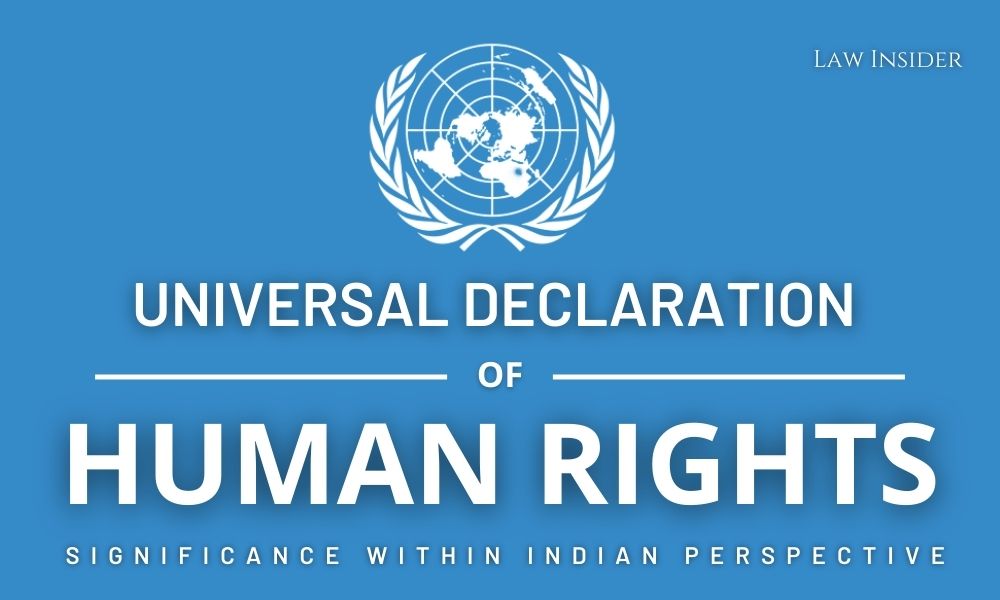The Freedom of Speech and Expression has been again in the limelight with the recent arrests, seizures, and raids at the homes of around 100 journalists associated with the leftist outlet, Newsclick, including its editor-in-chief Prabir Purkayastha. While sparking ferocious outrage and contempt from various individuals and organizations across the world, these events have also revived deliberations over the perennially debated provision of national and international statutes, i.e., the Freedom of Speech.
You must have wondered about why and how this principle of freedom is that debatable and controversial.
This article analyzes each and every aspect of freedom of speech for you.
 What exactly is Freedom of Speech and its importance?
What exactly is Freedom of Speech and its importance?
Freedom of Speech and expression is based on the principle of giving rights to everyone to voice their opinions, their views including critical ones against the policies and procedures of the ruling dispensation freely.
The essence of this right lies in letting people speak and express their views, opinions and their feelings without the fear of being persecuted for their words. This freedom is essential to maintain the survival of democracies across the world and to prevent the conversion of states into dystopian regimes, similar to what George Orwell describes in his classic dystopian novel, ‘1984’.
This right of freedom of speech and expression encompasses rights of each and every individual, from a layman sipping tea while reading his morning newspaper and voicing his opinions, to an international civil servant speaking in a public conference while also including professional working in a media organisation publishing and writing on the public policies of the government and others.

With the advent of the Printing Press in the 14th century, the speed of the circulation of thoughts and ideas became unparalleled, inviting restrictions from the authorities. In that moment, the need for legally providing this right or freedom of speech to citizens was being felt for the first time to preserve their speech and expressions.
International source of this freedom
The source of this universally recognised Freedom of Speech is The Universal Declaration of Human Rights, proclaimed by the United Nations General Assembly in Paris on 10 December 1948. Article 19 of the declaration gives everyone the right to freedom of opinion and expression which includes freedom to hold opinions without interference and to seek, receive and impart information and ideas through any media and regardless of frontiers.

Status of this right in Indian statutes
The fundamental law of the land, i.e., the Indian Constitution itself enshrines this inevitable freedom into its initial pages. Article 19 Clause (1) sub-clause (a) provides all citizens of India the right to freedom of speech and expression. However, there are reasonable restrictions placed upon this freedom in Article 19 Clause (2) of the constitution, which translates into imposing restrictions on this freedom by any law in the interests of the sovereignty and integrity of India, the security of the state, friendly relations with foreign states, public order, decency or morality or in relation to contempt of court, defamation or incitement to an offence.
Time and again, the government has used this sub-clause as an umbrella while precipitating crackdowns over dissenting voices of individuals, university students and media organisations because what constitutes ‘public order’ or the specifics of various terms mentioned in the sub-clause remains unclear to this date.
Apart from the Constitution, the freedom of speech and expression is also restricted through legal acts such as the Unlawful Activities Prevention Act, 1967 and TADA.
How is this freedom protected in other countries?
The first amendment of the United States of America protects freedom of speech, however, the US Supreme court too has struggled to determine the specifics of protected speech. Though the efforts in the form of various judgements such as Texas vs Johnson, 1989, Cohen vs California (1971), have been made by the SCOTUS, yet, the aura remains perplexed.

Article 29 (1) of the Russian constitution guarantees the freedom of ideas and speech and Article 29 (5) for the freedom of mass communication while also banning censorship. However, the autocracy of Russian authorities when it comes to national security matters, has always been in the limelight.
The 1982 Constitution of China too provides for the freedom of speech in the form of Article 36, however, the Chinese government often uses the “subversion of state power” and “protection of state secrets” clauses to show its disregard for human rights.
Most tolerant country in terms of freedom of speech and expression
According to the World Economic Forum’s Free Expression Index, the U.S. is most supportive of Free Expression while India being featured in the last ten among the 38 countries considered for the index.
![Texas v. Johnson [SCOTUSbrief] - YouTube](https://i.ytimg.com/vi/ZQfPju6yuRM/maxresdefault.jpg)
The picture below shows the ranking major regions of the world in terms of protecting freedom of speech, as released by World Economic Forum. Thus, this forces us to remain optimistic about this natural and universal freedom of speech remaining intact in future and people continuing to be bestowed by this essential freedom of speaking and expressing themselves freely with only reasonable restrictions.

Images are sourced from WEF, UN, The Guardian.


 What exactly is Freedom of Speech and its importance?
What exactly is Freedom of Speech and its importance?









